Goodbye, 2021. We won’t focus on the way you left us — dealing with a new COVID-19 variant and uncertain about the future. No, we at Washington University in St. Louis will focus on the good — bold new discoveries, hopeful new students and a promising new direction for the university.
Here, the Source shares some of the year’s most-read stories that highlight the great strides of the WashU community.
Supporting students; expanding opportunities
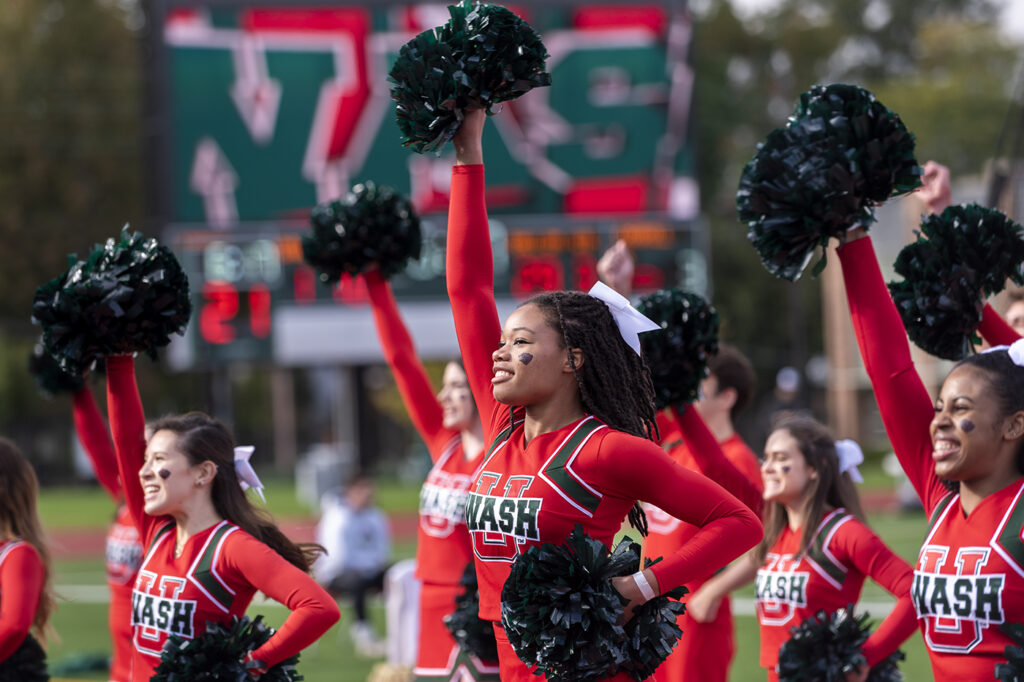
With an unprecedented endowment return of 65%, Washington University made a bold $1 billion investment in student success. The initiative, which the university is calling Gateway to Success, includes a $800 million in endowed funding to support need-blind undergraduate admissions — long a top goal for the university. As a need-blind institution, the university will not consider an applicant’s financial situation when making admissions decisions while still meeting 100% of demonstrated financial need for admitted undergraduates. An additional $200 million will be designated for financial aid for graduate and professional students in the Brown School, the School of Law and the School of Medicine, as well as in business, engineering, art and architecture, and Arts & Sciences.
“Since I became chancellor nearly two years ago, becoming need-blind has been a top priority. Building on the momentum that began with our previous administration, we’re finally making it happen,” Chancellor Andrew D. Martin said upon announcing Gateway to Success in October. “This is a proud moment for us as an institution and I’m grateful to all who have contributed along the way, including generous donors who have provided scholarships and other financial support for our students.”
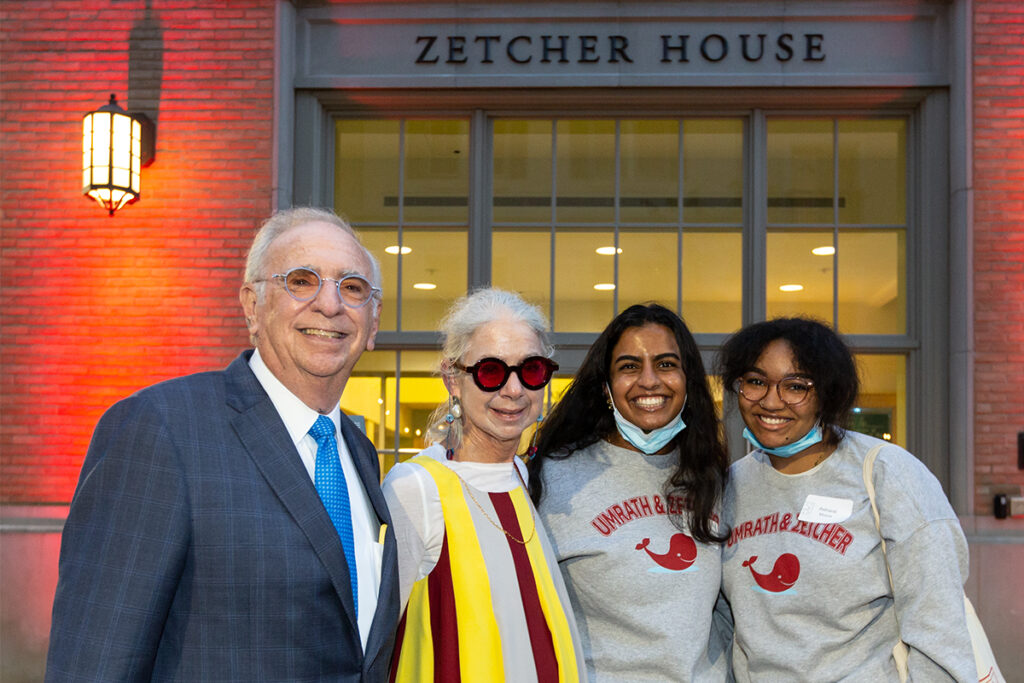
The university also announced other major gifts to support students. Alumnus and emeritus trustee Arnold B. Zetcher and his wife, Ellen, made a commitment of at least $8 million in outright and estate gifts to establish an endowed scholarship for undergraduate students. Alumnus and emeritus trustee John Dains donated $8 million to support an undergraduate student success fund to help cover emergency and educational enrichment expenses. And P. Roy Vagelos, MD, founder of the Division of Biology & Biomedical Sciences (DBBS), and his wife, Diana Vagelos, made a $15 million gift to undergraduate programs and graduate student fellowships in the life sciences.
Studying COVID-19; seeking solutions
Washington University scientists committed 2021 to studying the deadly COVID-19 pandemic. Readers were especially intrigued by the following stories:
Research from Ziyad Al-Aly, MD, assistant professor of medicine, found that COVID-19 survivors — including those not sick enough to be hospitalized — have an increased risk of death in the six months following diagnosis with the virus.
Research published in August co-led by Ali Ellebedy, associate professor of pathology and immunology, of medicine and of molecular microbiology, found that the delta variant of the virus that causes COVID-19 is largely unable to evade antibodies elicited by vaccination.
Research from the lab of Ryan Bogdan, associate professor of psychological and brain sciences in Arts & Sciences, suggests cannabis use disorder (CUD) should be added to the list of COVID-19 risk factors because the genetic predisposition to CUD is overrepresented in people with poor COVID-19 outcomes.
And research from Jeannie Kelly, MD, assistant professor of obstetrics and gynecology, suggests nursing mothers who receive a COVID-19 vaccine may pass protective antibodies to their babies through breast milk for at least 80 days following vaccination.
Saying hello, bidding farewell to amazing students
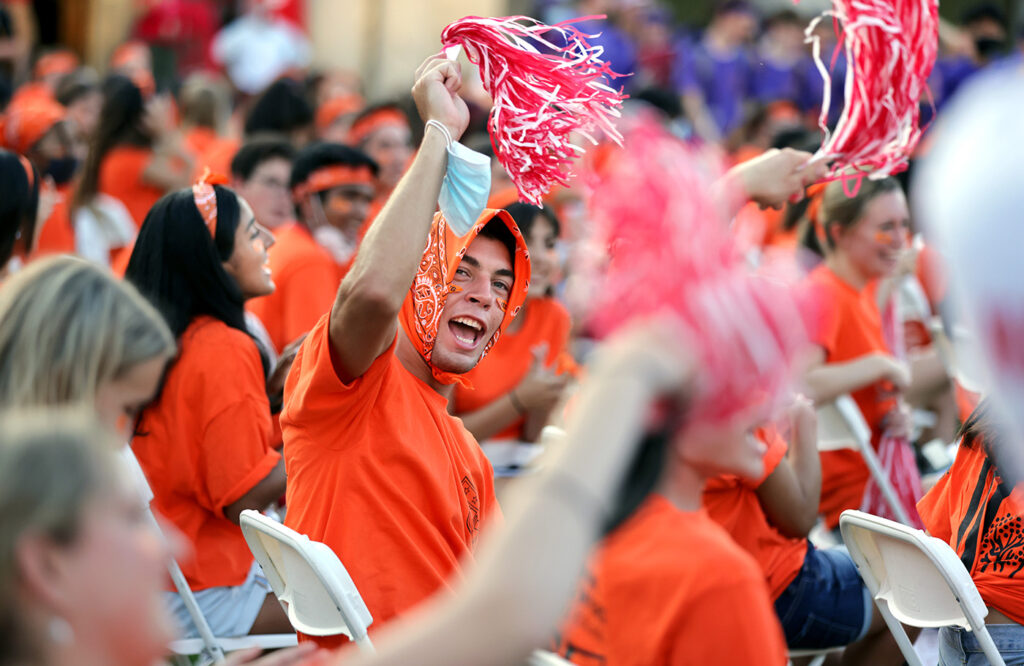
During an exceptional admissions cycle, Undergraduate Admissions reviewed 33,634 applications — a 20% increase from 2020. In August, 1,994 of those students moved onto the South 40, made new friends at the Bear Beginnings tailgate party and celebrated Convocation in Brookings Quadrangle. The Class of 2025 is the largest and most diverse in university history – 17% are Pell Grant-eligible, 12% are the first in their families to attend college, 5% are international and 49% identify as students of color.
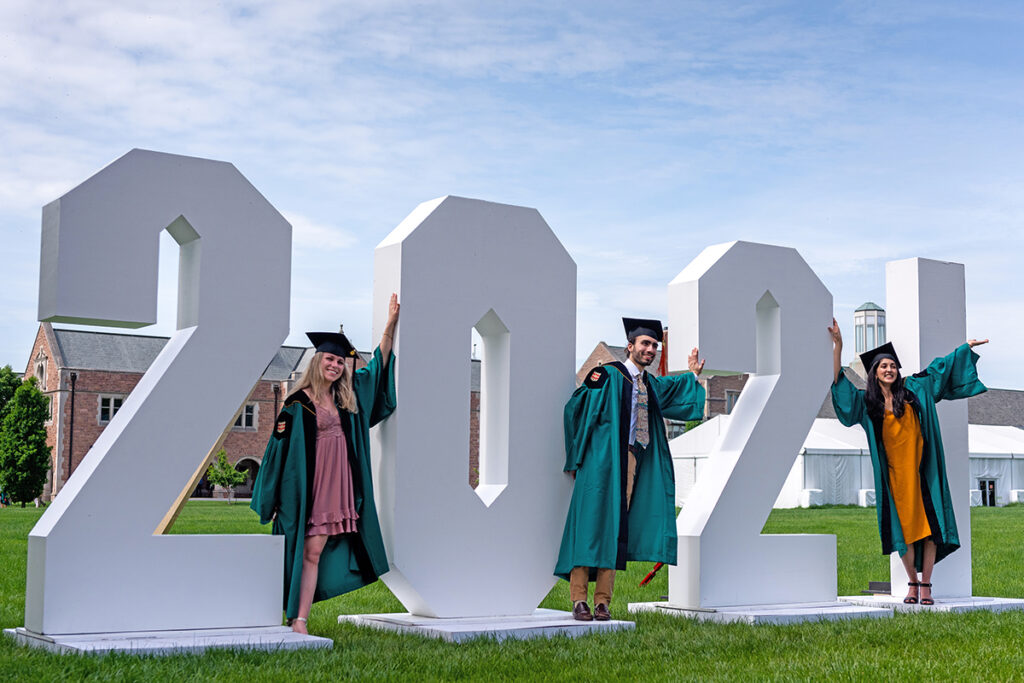
Washington University celebrated the Commencement of the Class of 2021 in its new home, Francis Olympic Field. Basketball legend and activist Kareem Abdul-Jabbar served as speaker. The Class of 2020 also was welcomed home for an in-person ceremony featuring Julie L. Gerberding, MD, the first woman to serve as director of the Centers for Disease Control and Prevention.
Among those who left their mark at Washington University are the School of Medicine’s graduating physicians; a Maryland man who graduated 67 years after he started his education at Washington University; and baseball Bears Caleb Durbin and Ryan Loutos, who signed deals with Major League Baseball teams — Durbin as a 14th-round draft pick to the Atlanta Braves and Loutos as an undrafted free agent to the St. Louis Cardinals.
Digging for clues; overcoming obstacles
Despite the pandemic, Washington University researchers persisted in their research, making groundbreaking discoveries in archeology, medicine, engineering and other disciplines.
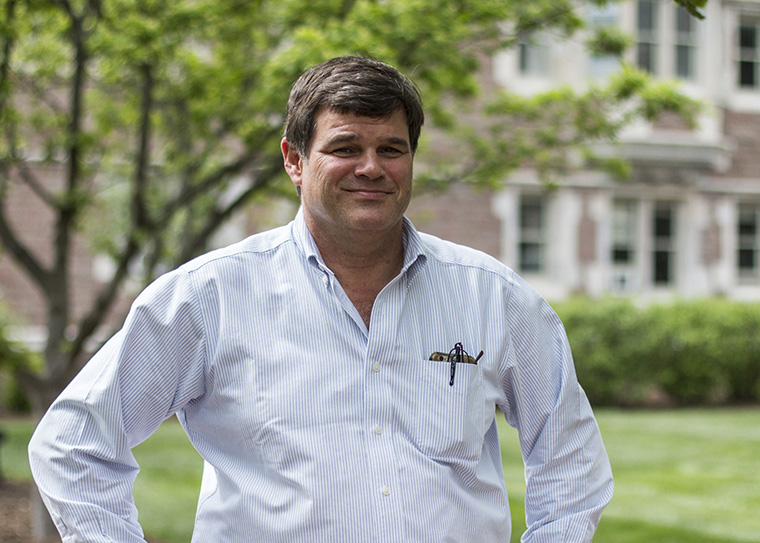
Two archeological studies especially fascinated readers. In one, Tristram “T.R.” Kidder, the Edward S. and Tedi Macias Professor of Anthropology in Arts & Sciences, found evidence that suggests America’s first civilization was made up of sophisticated engineers capable of building massive earthen structures in a matter of months — possibly even weeks — that withstood the test of time. In the other, Caitlin Rankin, who conducted her graduate studies at Washington University, found there is little evidence to support the prevailing theory that wood overuse led to the collapse of Cahokia, the pre-Columbian Native American city in present-day Illinois.
Other top stories include:
- Research from Clara L. Wilkins, associate professor of psychological and brain sciences in Arts & Sciences, shows that conservative Christians perceive that growing acceptance of LGBTQ individuals impedes their ability to practice their faith — as if gains for one group necessarily involved losses for the other.
- A study with zebrafish from Gary Patti, the Michael and Tana Powell Professor of Chemistry in Arts & Sciences, shows that a deadly form of skin cancer — melanoma — alters the metabolism of healthy tissues elsewhere in the body and suggests that these other tissues could potentially be targeted to help treat cancer.
- The lab of Srikanth Singamaneni, the Lilyan & E. Lisle Hughes Professor at the McKelvey School of Engineering, has developed a microneedle patch that can be applied to the skin and capture antibodies and more in the fluid between cells. The technology is low cost, easy for clinicians or patients themselves to use and could eliminate the need for a trip to the hospital just for a blood draw.
- And Ta-Chiang Liu, MD, PhD, associate professor of pathology and immunology at the School of Medicine, finds that eating a Western diet impairs the immune system in the gut in ways that could increase risk of infection and inflammatory bowel disease. In related work, Jeffrey I. Gordon, MD, the Dr. Robert J. Glaser Distinguished University Professor and director of the Edison Family Center for Genome Sciences & Systems Biology has identified ingredients for snack food prototypes that have been formulated to deliberately change the gut microbiome in ways that can be linked to health.
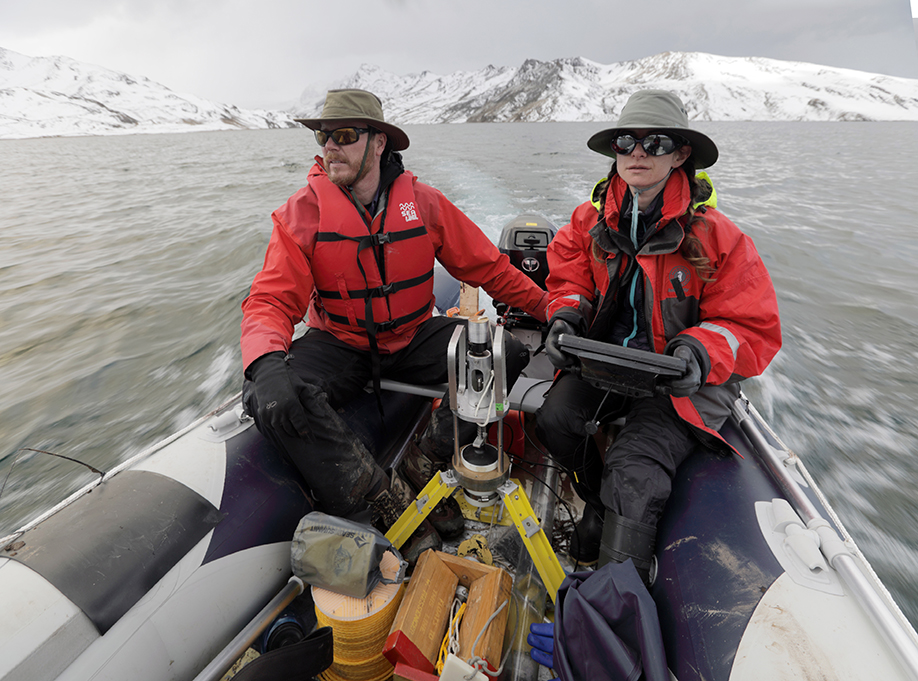
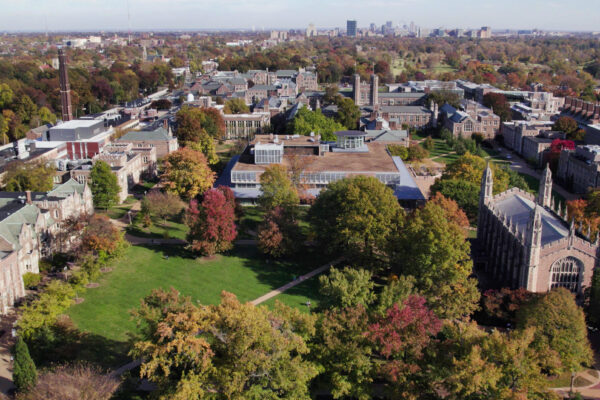
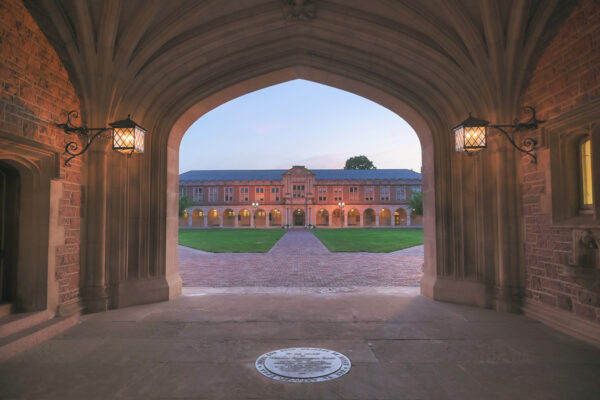
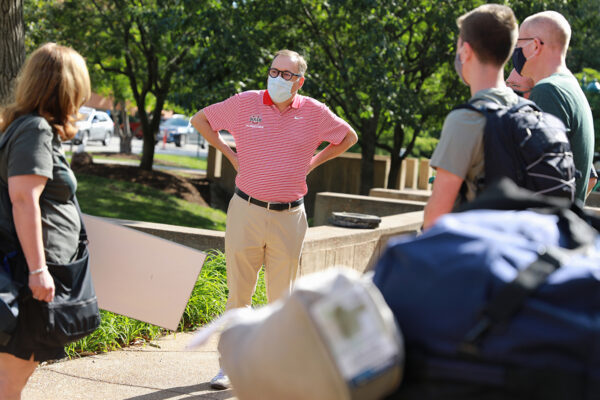
Comments and respectful dialogue are encouraged, but content will be moderated. Please, no personal attacks, obscenity or profanity, selling of commercial products, or endorsements of political candidates or positions. We reserve the right to remove any inappropriate comments. We also cannot address individual medical concerns or provide medical advice in this forum.